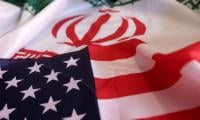Islamabad: Civil society representatives on Wednesday suggested the Election Commission of Pakistan (ECP) to penalise political parties that didn’t allocate 5 per cent party tickets to women on general seats in Elections 2018.
The Election Act 2017 binds all political parties to allot 5 per cent tickets on general seats to women. The provision is also part of the legal requirements for political parties to get election symbols for general elections.
The suggestion was given in a meeting of Gender and Disability Electoral Working Group chaired by Secretary ECP Babar Yaqoob. Director General Gender Affairs ECP Nyghat Siddique also attended the meeting.
Participants appreciated the efforts of ECP for making the General Elections inclusive for women, disabled and transgender. They praised ECP’s role in voters’ registration and education and said that quick response by ECP Gender Desk on their complaints on Election Day helped in resolving many issues that required immediate attention. They expressed hope that the implementation of Election Act 2017 would further improve in by-elections and upcoming local bodies’ elections.
The participants from different civil society organizations also highlighted issues linked to accessibility, postal balloting and filing of nomination papers etc. Representatives of persons with disability and transgender community suggested reserving party tickets on general seats for them, as has been done for women. They also recommended waiving security fee of nomination papers for persons with disability in order to encourage more and more PWDs to contest elections.
Secretary ECP Babar Yaqoob said that initiatives taken by ECP in collaboration with civil society for inclusive elections were just a beginning. He said that the recommendations given by the participants will be considered for gender mainstreaming strategy and upcoming third strategic plan.
He said that ECP, in collaboration with civil society, NADRA, UNDP, TDEA, registered 4.3 million new female voters from July 2017 to April 2018. Postal ballot facility was provided to persons with disability and a video with sign language was prepared for mass awareness which as shared with organizations working on disability for further dissemination.
In addition to that, instructions were sent to all provincial governments to keep polling stations well lit, accessible and on ground floor and build ramps where ever required. “Election Commission imparted gender sensitive trainings for 850,000 polling staff. They were given clear instructions not to make Persons with Disabilities, transgender, elderly and expecting mothers stand in line. Gender sensitive codes for media, polling staff and security personnel were prepared and 2 D Braille posters with guidelines on voting procedures were prepared and placed at the entrance of various polling stations,” he said.
For voters’ education, he said that ECP printed and displayed voting procedures on utility bills and ATM machines and developed and broadcasted radio and electronic media messages. “ECP also set up gender desk on polling day for quick response for any complaint regarding women, elderly, persons with disability and transgender community. The desk received 85 complaints and majority of them were addressed instantly,” he added. Director General Gender Affairs for ECP Nyghat Siddique briefed the participants about the encouraging and, in some constituencies, extraordinary turnout of women in Elections 2018. She said that in Chakwal 1, 2 and 3, the women voters’ turnout was more than men. She said that in PK 23, 14 per cent women came to vote after the results of July 25 polling were declared null and void by the ECP due to lower than 10 per cent turn our of women voters. “This is just the first step and the next five years ECP strategy would build on what has already been achieved,” she said.
Minister says economic indicators are truly positive today under leadership of Prime Minister Shehbaz Sharif
According to police, deceased was Dr Nemat Ali, a resident of Chichawatni
FIA Headquarters, Islamabad released the details of the crackdown
Both dignitaries engaged in a constructive exchange of views on matters of mutual interest
A three-member bench headed by the CJP Justice Yahya Afridi will hear appeals on March 10
“Let us reaffirm our commitment to empower every woman to help her achieve her full potential,” says President...







